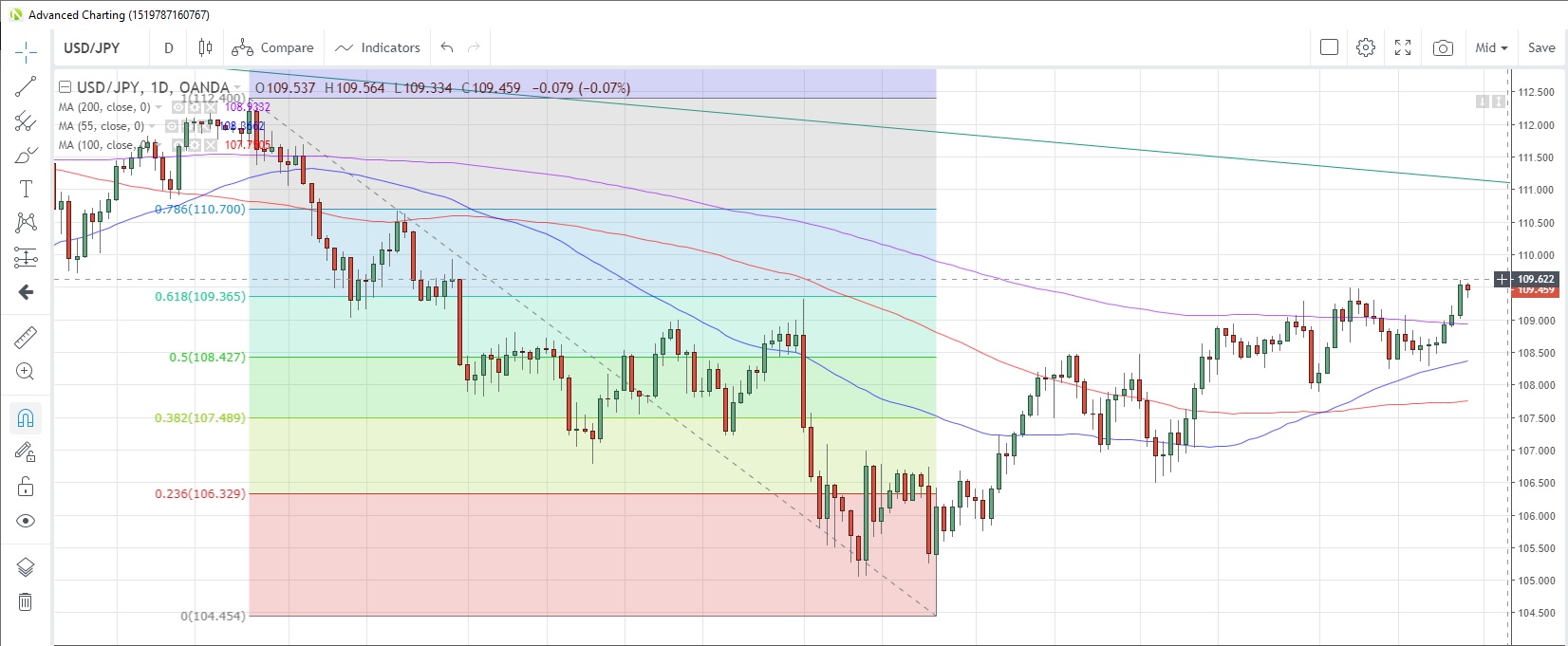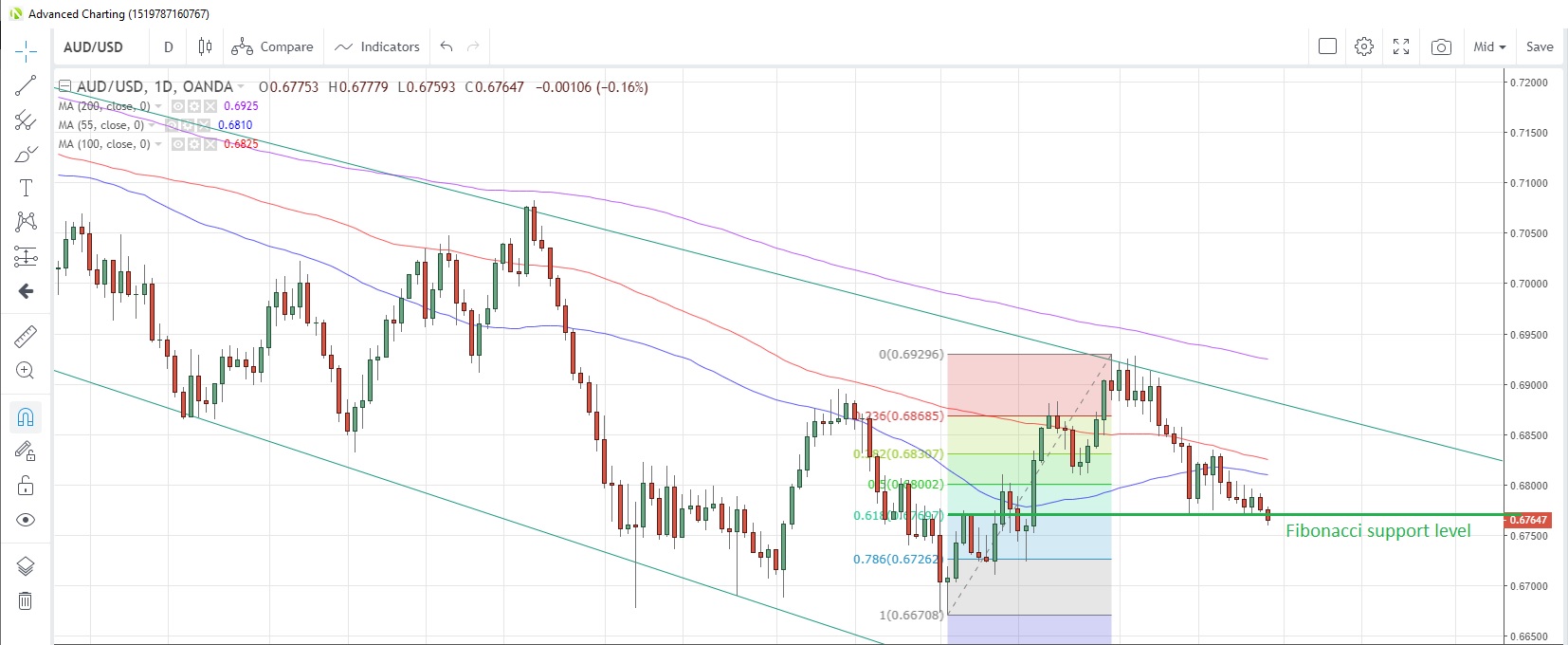
Q3 growth above forecast
The U.S. economy expanded at a quicker pace than expected in the third quarter, growing 2.1% annualized versus the +1.9% expected. Subsequently, the Fed’s Beige Book saw an upgraded report with the economy growing at a “modest” pace versus “slight to modest” in the previous report.
Adding to the bullish news, U.S. durable goods orders (granted it’s a volatile series of data) confounded forecasts of a 0.8% decline with a +0.6% print in October following a 1.4% contraction in September. Wall Street climbed to new record highs and the U.S. dollar advanced as short-term U.S. yields rose, with USD/JPY reaching the highest since May 31.
Does China “retaliation” mean Phase 1?
In response to U.S. President Trump signing the Hong Kong Democracy Bill into law, China has said the bill severely meddles in China’s internal affairs. It strongly opposes it and, as usual, threatened retaliation, though no details of what this might entail were given. Markets appear to have mostly shrugged off the implications for the Phase 1 trade negotiations, with U.S. indices reaching new record high ahead of the Thanksgiving holiday.
Those gains appear to be a bit shaky in slow trading during this morning’s Asian session, with U.S. indices sliding between 0.25% and 0.35%, with the US30 index having a negative day for the first time in five days.
Weak Australian Capex
Australia’s private capital expenditure data for the third quarter came in below expectations, contracting 0.2% versus forecasts of -0.1%. That’s now the third consecutive quarter that it’s been in negative territory with investment in equipment, plant and machinery a drag. The estimate for total private capital investment for the 2019-20 period was revised higher to A$116.7 billion from A$113.4 billion.
The weaker numbers pressured the Australian dollar across the board, with AUD/USD dropping as much as 0.24% to 0.6759, the lowest since October 17. AUD/JPY was priced lower and looks set to record the first daily loss in five days with the 100-day moving average sitting below at 73.54.

Europe-centric calendar
The U.S. Thanksgiving holiday has ensured a shorter data calendar for today. Europe focuses on a number of confidence indicators, with consumer confidence unchanged at -7.2 this month and the economic sentiment indicator improving to 101 from 100.8.
Provisional German November inflation data is expected to show prices rising 1.3% y/y after a 1.1% gain in October. We can also expected speeches from ECB’s Coeure and Lane and one from the Bundesbank’s Weidmann.
